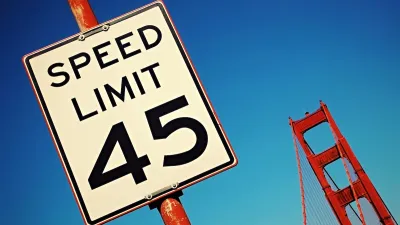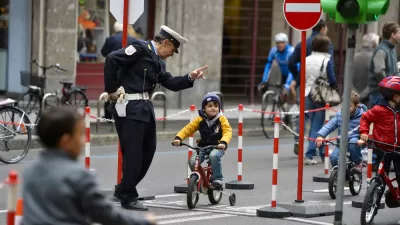In this op-ed, CA state Senator Leland Yee (D-SF/San Mateo) discusses the result of his legislation to apply double traffic fines, as well as city street improvements, on two of the most dangerous roads in SF, 19th and Van Ness Aves.
State Highway Routes 1 (19th Ave.) and 101 (Van Ness Ave. and Lombard St.) in San Francisco were the targets of Senator Yee's legislation in 2008. In this op-ed, he describes the contrasting results of the double fine on both roads. However, an earlier Examiner article gives a contrasting viewpoint.
"In 2008, after five years of hard work, we were finally able to get a double-fine zone on 19th Avenue when Gov. Arnold Schwarzenegger signed SB 1419 - a bill I crafted with the help of several San Francisco community members. The combination of the fines and the improvements resulted in a substantial drop in traffic accidents along 19th Avenue, and there was not a single pedestrian death in 2009 - a result of which all San Franciscans can be proud."
As part of the compromise to get the double-fine zone on 19th Avenue approved, the Senate Transportation Committee insisted that we also include a double-fine zone on Van Ness Avenue, another dangerous corridor in our city. However, thus far, the (street) improvements that have been made on 19th Avenue have failed to materialize on Van Ness Avenue, and as a result we have not seen a similar statistical change."
From SF Examiner, Jan 13, 2010: Doubled fines fail to deter crashes: "Doubling the traffic fines on city streets that also serve as highways does not prevent car crashes and pedestrian accidents on the busy thoroughfares, according to new statistics. One year into the five-year trial period, however, accidents on one stretch of the roadway covered by the fines have increased by 40 percent, pointing to the ineffectiveness of the penalties alone to make the streets safer for cars and pedestrians."
However, the above collisions were reported on Van Ness Ave (and Lombard St., also part of Hwy 101), not 19th Ave, which saw a decrease in reported collisions.
FULL STORY: Saving Lives on Busy SF Street Corridors

Maui's Vacation Rental Debate Turns Ugly
Verbal attacks, misinformation campaigns and fistfights plague a high-stakes debate to convert thousands of vacation rentals into long-term housing.

Planetizen Federal Action Tracker
A weekly monitor of how Trump’s orders and actions are impacting planners and planning in America.

San Francisco Suspends Traffic Calming Amidst Record Deaths
Citing “a challenging fiscal landscape,” the city will cease the program on the heels of 42 traffic deaths, including 24 pedestrians.

Bend, Oregon Zoning Reforms Prioritize Small-Scale Housing
The city altered its zoning code to allow multi-family housing and eliminated parking mandates citywide.

Amtrak Cutting Jobs, Funding to High-Speed Rail
The agency plans to cut 10 percent of its workforce and has confirmed it will not fund new high-speed rail projects.

LA Denies Basic Services to Unhoused Residents
The city has repeatedly failed to respond to requests for trash pickup at encampment sites, and eliminated a program that provided mobile showers and toilets.
Urban Design for Planners 1: Software Tools
This six-course series explores essential urban design concepts using open source software and equips planners with the tools they need to participate fully in the urban design process.
Planning for Universal Design
Learn the tools for implementing Universal Design in planning regulations.
planning NEXT
Appalachian Highlands Housing Partners
Mpact (founded as Rail~Volution)
City of Camden Redevelopment Agency
City of Astoria
City of Portland
City of Laramie





























